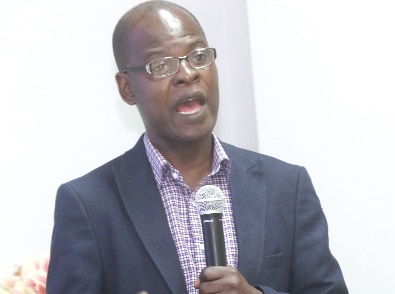The Public Interest and Accountability Committee (PIAC) has called on school authorities to be vigilant and monitor the quality of supplies brought to the schools under the free senior high school (SHS) programme.
That, the committee believes, will help prevent suppliers from using schools as dumping ground for all sorts of products for students.
A statement issued by the committee, which has oversight responsibility for the management of petroleum resources, made the call based on its findings and observations from a monitoring exercise undertaken in 2018 and 2019 on the implementation of the free SHS programme.
“The committee encourages vigilance on the part of school authorities in monitoring the quality of supplies, such as inspecting the expiry dates, among others. This will prevent the suppliers from using the schools as dumping ground,” the statement, signed by the Chairman of PIAC, Mr Nobel Wadzah, on Wednesday said.
It said the committee also strongly recommended full transparency in the delivery of supplies to the schools, adding that in particular the Buffer Stock Company must ensure that all goods supplied were accompanied by advice on the value and the quantity of the goods.
It also called on the government to ensure that disbursements to the schools were done expeditiously, as the non-free SHS students phased out, to avoid closure of the schools and disruptions to the academic calendar.
General observations
The statement noted that the free SHS programme had encouraged a more timely reporting of students to school at the beginning of each term, compared to the period preceding the programme, as they no longer had to wait for school fees.
On the supply of core textbooks, it noted that they had been adequately provided in all schools visited, albeit late in some instances.
“Generally, the books were supplied in sufficient quantities,” it said.
It said the free SHS programme had led to an increase in enrolment in 41 per cent of the schools visited, while girls’ enrolment in particular had increased across most of the schools visited.
It added that school authorities and some of the students interviewed admitted that food variety and quality had generally improved under the programme.
Background
The exercise was in line with PIAC’s mandate of monitoring and evaluating compliance with the Petroleum Revenue Management Act, 2015 (Act 815), as amended, in the management of petroleum revenues and conducting independent assessment of the management and use of those revenues.
In line with its mandate to undertake independent assessment of the management and use of petroleum revenues, PIAC, in 2018 and 2019, undertook the monitoring of SHSs under the free SHS programme.
The exercise covered 51 schools across the Ashanti, Bono, Ahafo, Bono East, Central, Greater Accra, Northern, Upper East, Upper West and Western regions.
Decision
The committee’s decision to monitor the programme, the statement said, was because the programme benefited substantially from the Annual Budget Funding Amount (ABFA) through the selection of Physical Infrastructure and Service Delivery in Education as a priority area for petroleum revenue spending.
In 2017, GH¢196 million, representing 59 per cent of utilised ABFA, was spent on the programme, with 50 per cent or GH¢415 million going to support the programme in 2018.
For 2019, approximately GH¢680 million, representing about 32 per cent of the projected ABFA, was allocated to the programme.

